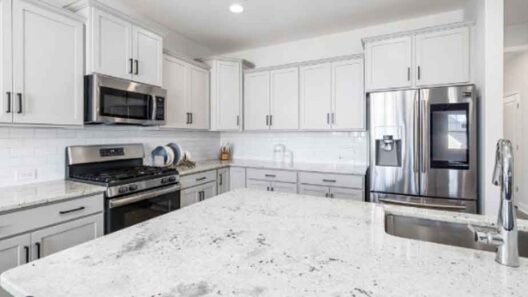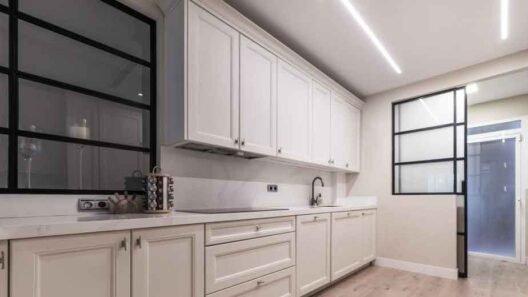For many renters in Los Angeles, the promise of a safe and livable home does not always match reality. Cracked walls, persistent leaks, faulty wiring, and insect infestations are problems that far too many tenants face in silence. These are not just inconveniences. They can have serious consequences for physical health, mental well-being, and daily life.
California law provides protections for renters, but not everyone knows what those are or how to act when something goes wrong. If you’re dealing with serious habitability issues and feel overwhelmed, it may be time to consider speaking with professionals who understand tenant law. For example, those looking for experienced support can consult with tenant lawyers in Los Angeles to explore their rights and next steps.
What Counts as Unsafe Housing?
Unsafe or uninhabitable housing refers to any living space that fails to meet basic health and safety standards. This includes issues like:
- Mold or water damage
- Lack of heating or hot water
- Pest or rodent infestations
- Faulty plumbing or electrical systems
- Broken doors or windows that compromise security
These conditions can create long-term risks for tenants, especially children, seniors, and individuals with chronic health conditions. In many cases, they are also violations of state or local housing codes.
Unsafe housing may also include structural problems, poor ventilation, lead paint, or broken smoke detectors. These conditions might not seem urgent at first but can quickly become dangerous if ignored.
Why Some Tenants Stay Silent
Many renters hesitate to report unsafe conditions out of fear — fear of eviction, rent hikes, or landlord retaliation. Others may not realize they have legal rights or believe that no one will listen. This can lead to months or even years of living in substandard environments, often with worsening conditions.
There is also a concern about language barriers or immigration status. Some tenants may worry that speaking up could cause trouble or draw unwanted attention, especially if they are not familiar with local laws or support systems. Unfortunately, this silence can allow problems to persist and affect others in the same building.
But the truth is, tenants have rights. Landlords are required to provide housing that is safe, secure, and livable. When they do not, renters have legal tools they can use to demand action or seek compensation for harm.
What You Can Do
If you are living with serious housing issues, start by documenting the problems. Take photos, keep notes of repair requests, and save any communication with your landlord. This evidence can be important if the issue escalates.
You can also:
- Submit written requests for repairs
- Contact your local housing department to report violations
- Talk to neighbors about shared concerns in the building
Some tenants also find support through tenant unions or community organizations. These groups often offer guidance, help with paperwork, or provide moral support during difficult housing situations.
If these steps do not bring results, or if you feel unsafe raising the issue alone, legal support may be necessary.
When to Talk to a Lawyer
Not every situation requires legal help, but some do. If your landlord ignores major safety issues, threatens you for complaining, or refuses to make necessary repairs, a lawyer can help protect your rights.
Tenant lawyers understand housing laws and can help you:
- Understand what qualifies as a legal violation
- Send formal notices or demands for repair
- File claims for damages or forced relocation
- Avoid retaliation or wrongful eviction
Many firms offer free consultations or work on a contingency basis, especially in cases involving health hazards or housing code violations. The goal is to make legal help accessible to renters, not just landlords.
Legal representation can also be useful if you are preparing to move out due to unsafe conditions and want to protect your deposit or avoid liability for breaking a lease early. A tenant lawyer can help clarify your rights and responsibilities.
Empowerment Through Information
Renting in Los Angeles comes with its challenges — high prices, limited inventory, and wide variation in landlord practices. But it also comes with protections. Knowing your rights is the first step to living in a safe, stable home.
No one should have to choose between paying rent and living in a healthy space. Unsafe housing is not just a matter of discomfort. It can affect school attendance, work productivity, and long-term wellness. Holding property owners accountable is one way to push for better standards across communities.
Empowered tenants are better equipped to stand up for themselves and their neighbors. By sharing resources, raising concerns collectively, and seeking help when needed, renters can help shape safer housing practices across neighborhoods.
Final Thoughts
If your home puts your safety or health at risk, know that you are not alone. Many renters face similar challenges, and there are resources available to help. Whether through local housing agencies, tenant advocacy groups, or legal professionals, support is out there.
By taking action — even small steps like documenting problems or learning your rights — you can protect your well-being and help bring change to a system that too often overlooks the voices of renters.
No one should have to fight for the basics. But when that fight becomes necessary, it helps to know you have options and allies.








